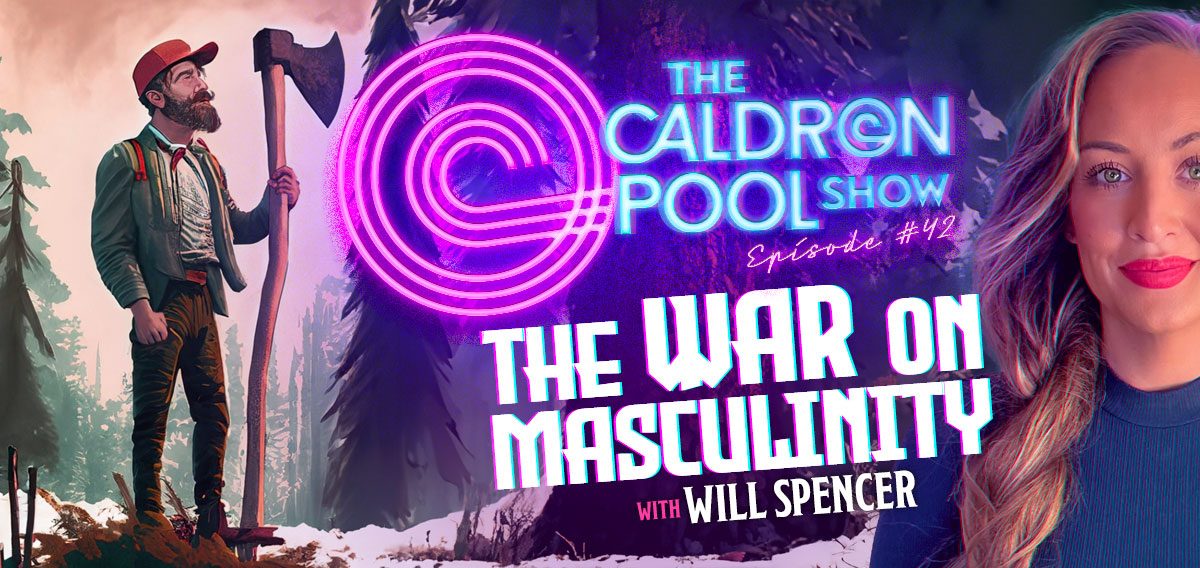Wherever you look, socialism is sexy again. In the UK this week, Jeremy Corbyn is seeking election as the nation’s Prime Minister on a proudly socialist platform.
In the USA, socialist Bernie Sanders is making a second run for President, and he has the endorsement of “the Squad”—a group of socialist Congresswomen which includes the famous firebrand freshman AOC.
You may not have noticed yet, but the climate strikes taking place the world over also have strong socialist undercurrents.
If the word socialism is new to you, it’s basically the idea that society’s wealth should be redistributed and shared by everyone. (Be sure to do your own research to fill out this definition).
Socialism arose in the 19th century as a reaction to capitalism—our western economic system that is built on the idea of free trade, private ownership and entrepreneurship.
Both capitalism and socialism have their pros and cons. No system can generate wealth like capitalism can. But unrestrained, capitalism can lead to inequality and injustice.
Socialism, on the other hand, seeks to address these problems of inequality and injustice. But in order to achieve this effectively, socialist states require more and more power.
History has shown that socialism always moves towards totalitarianism, corruption, and poverty. The Soviet Union is the most notorious example of this—and Venezuela the most recent.
For all of these reasons, modern western nations have wisely decided to remain capitalist, albeit with a range of moderate socialist tweaks.
My country of Australia, for example, has a capitalist economy. But we have a universal healthcare system called Medicare, for which I’m very grateful. I have also benefitted from an interest-free student loan provided by our government, and a modest student income during the years I was at university.
In simple terms, the last hundred years of western politics have been a game of tug-of-war between those who want less of these “socialist tweaks” (conservatives, on the right) and those who want more (progressives, on the left). This is, and always will be, an important debate to have.
But something has started to shift in the last few years. Until recently, political parties that were openly socialist—and cheering for the overthrow of capitalism—remained on the fringe.
But socialism is now wildly popular in the mainstream. In a recent poll, for example, 53% of millennials said they view socialism favourably. Given socialism’s diabolical track record, this should concern all of us.
Socialism is seductive. It has gained in popularity, but for all the wrong reasons. Here are six of them.
1. Socialism strokes our ego
As humans, we’re drawn to ideas that tell us what we want to hear about ourselves. There is a certain compliment that socialism pays us, which helps explain why it is so attractive—especially to young people.
The compliment is this: we humans are inherently good. The idea that we are basically good and ultimately perfectible is a fixed assumption underlying the socialist worldview.
Socialism assumes that the reason people don’t work is because they can’t—because of some impossible setback or systemic injustice.
While these are genuine reasons that some people don’t work, there is also the reality of human laziness and entitlement. Socialism fails to account for these vices. It is blind to the inherent selfishness of humanity. And this is a dangerous mistake to make.
The reality is that if our collective wealth is redistributed—if the fruit of my labour is given to people who haven’t worked for it—then a big motivation for me to hold down a job or climb the career ladder is taken away.
Capitalism has worked for hundreds of years precisely because it accounts for this. Under the capitalist system, I am motivated to work because I will receive the reward that I deserve for my labour.
This system isn’t perfect, and as we’ve discovered, it needs checks and balances, like collective bargaining. But the capitalist systems we live under function so well because they are realistic: they account for both human vice and human virtue.
Socialism assumes only that humans are good. This is a nice compliment, and there is an attraction to this optimism. But it’s a deeply unstable belief on which to to build a society.
2. Socialism asks little and promises much
Socialism is often promoted by the well-educated and powerful. But it seeks its broad supporter base among those who feel disenfranchised.
I am a millennial. My generation came of age during the Great Recession, the global financial crisis that made us fear for our futures. We are the generation that, through no real fault of our own, are largely locked out of the real estate market. For better or worse, much later into life than previous generations, we have remained financially dependent on our parents.
Of course, these are generalisations, but all of these factors make millennials far more attracted to socialism.
Like our parents’ pocketbook, socialism seems to guarantee us ongoing prosperity while hiding the cost from us. It appeals to our fears and our financial dependence—our sense that we may never make it on our own. Socialism is a system that asks little of us and promises much.
In blunter terms, socialism is the politics of envy. It secretly appeals to our laziness and our sense of entitlement.
But history shows that while socialism is good at redistributing wealth, it has never been good at producing wealth. As Margaret Thatcher famously said, “The problem with socialism is that you eventually run out of other people’s money.”
3. Socialism spreads when history is forgotten
Today, we have the world’s knowledge quite literally at our fingertips. Through our smartphones alone, we can access all the breaking news from around the planet, and the wisdom of every civilisation.
We are the most educated people in history. It’s ironic then that we are so ignorant of history.
I went to school for thirteen years, but during all that time I learnt nothing of the 20 million people killed under Russia’s socialist republic. Or the 60 million lives that socialism claimed in China. Or the millions more who fell victim to socialist projects in lands as diverse as Vietnam, Romania, and Cuba.
In fact, estimates of the 20th century’s Socialist/Communist body count range from 100–150 million.
It is chilling to consider that socialism thrived in these places precisely because history was erased by their governments, or forgotten by their people.
If we are serious about preserving our liberty for generations to come, we would do well to heed the words of Edmund Burke, who said, “Those who don’t know history are doomed to repeat it.”
There is a pressing need for us to overcome our historical amnesia. This is a personal responsibility for each of us. But it also highlights the need for reformation in our institutions.
Identity politics has overrun too many of our schools, universities and media outlets. It stokes the rage of rival disenfranchised groups while ignoring the historic dangers in doing so.
Today’s downtrodden need a voice, to be sure. But their voice must be balanced with the cries of those from history who were crushed under the iron first of socialist empires.
Until then, socialism will retain its seductive allure.
4. Socialism appeals to the compassionate
Research shows that those who lean right tend to place more value on personal responsibility, while those who lean left are more prone to empathy.
Indeed, because of socialism’s emphasis on justice and practical aid for the poor and marginalised, a growing number of young Christians are drawn to socialism. I have often heard Christians make the case for socialism based on Acts 2:44-45.
“All the believers met together in one place and shared everything they had. They sold their property and possessions and shared the money with those in need.”
I don’t doubt for a second the sincerity of believers who see parallels between socialism and Christian concern for “the least of these”.
But in this parallel is a glaring omission. The early church wasn’t forming a government—at most, they were arranging a “commune”. In other words, it was a contract that the faithful entered into voluntarily.
Socialism, by contrast, is a political system that people are born into and cannot escape unless they emigrate. (And it is noteworthy that while people often try to flee socialist governments, the most desirable destinations for refugees seem to be capitalist countries).
No matter who you are—giver or recipient, religious or otherwise—compassion and generosity are always good for societies.
But compassion and generosity are, by their very definition, voluntary. The moment that large-scale “kindness” is enforced by government redistribution programs, it is at best high taxes. At worst, it’s extortion.
Socialism seems compassionate, but in truth, it is a pale substitute for compassion. Far better is a robust democracy where the typically progressive value of empathy is driven (and balanced) by the typically conservative value of personal responsibility.
5. Socialism is seen as above critique
To summarise so far, socialism tells us what we want to hear about ourselves; it requires little from us while promising the world, and it is uniquely depicted as the politics of compassion.
For all of these reasons, in the popular progressive imagination, there is almost no such thing as too much socialism. The more of it we have, the better.
Obviously, not all progressives believe this. But it’s certainly the dominant narrative in the mainstream media. Whether it’s expanded healthcare programs or open borders or a bigger welfare net or free university education, it’s almost as though the sky’s the limit.
Let’s have a conversation about each of these. But let’s balance it with the reality that the money has to come from somewhere. Inevitably, it won’t just be the rich who foot the ever-growing bill, but the middle class too.
Let’s also keep in view the fact that government services can breed generational dependence that ends up hurting the very communities they are seeking to help. Self-reliance—whatever that looks like—is important not just for material needs, but for people’s sense of dignity and purpose.
6. Socialism provides meaning in a post-Christian world
We all need something to live for. Though not all westerners through history were Christians, Christianity provided us with a collective sense of ultimate meaning and purpose.
In the West, as we become increasingly post-Christian, we are experiencing a vacuum of meaning. Many ideologies have rushed into the void, and undoubtedly one of those is socialism: the dogma that the government can solve all of our problems.
In the name of a thousand different causes, people now give their energies to this dogma with religious fanaticism.
And as misdirected as this is, it makes sense. In our subconscious, we know that something should rule over us. The closest substitute that we humans have so far found for God is the state.
It is no coincidence that socialism and atheism have historically had a strong connection. The bigger a government gets, the more it tends to act like God.
Socialist states end up replacing God by seeking to provide everything, protect us from everything, and police everything. But as Thomas Jefferson warned, “A government big enough to give you everything you want is strong enough to take everything you have.”
The founding fathers of western nations like America understood this in ways we have forgotten. Jefferson also warned that “The natural progress of things is for liberty to yield, and government to gain ground.”
Today, people are quick to put Christians in their place and tell them to keep their religion out of politics. But this would have been news to our forebears. Religion is what helped them keep a healthy perspective on politics.
William Penn wrote that, “Those people who will not be governed by God will be ruled by tyrants.” Patrick Henry’s warning was even more chilling: “It is when people forget God that tyrants forge their chains.”
I don’t know about you, but I’ll take God over totalitarianism any day of the week.
Let’s keep talking about the role government should play in our lives; about the tweaks needed under capitalism to root out injustice. But please, can we steer clear of socialism?



















